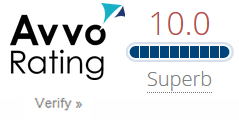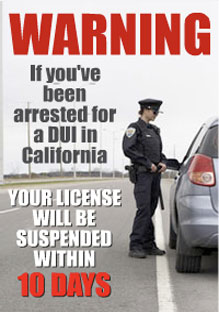Misdemeanor vs. felony DUI in California
Most first and second DUIs are charged as misdemeanors. However, certain facts elevate a DUI to a felony with substantially higher exposure, including the possibility of state prison. The California Courts Self-Help Center outlines how criminal cases proceed from arraignment through disposition: https://selfhelp.courts.ca.gov/criminal-court/overview/arraignment. Knowing where your case sits on the misdemeanor–felony spectrum informs early decisions.
DUI causing injury: when harm elevates the case
When prosecutors allege that driving under the influence caused injury to another person, a DUI can be filed as a felony. Even a first–time offender may face felony charges if the state claims impairment caused bodily harm. Defense focuses on whether impairment existed, whether any driving was actually unlawful, and whether the alleged injury was caused by the accused driver’s conduct.
Fourth DUI within 10 years: repeat–offense exposure
Multiple priors increase risk. A fourth DUI within a 10–year period can be charged as a felony. Prosecutors will examine certified prior convictions and the exact offense dates. We scrutinize the validity of prior pleas, advisements, and whether alleged priors are legally comparable.
Prior felony DUI: any new DUI can be a felony
If you have a prior felony DUI, a new DUI arrest can be filed as a felony regardless of injury or BAC. Here, defense work often centers on suppressing unreliable evidence, litigating probable cause for the stop, and challenging blood or breath procedures to reduce or dismiss felony allegations.
Aggravating facts that increase penalties (but may not make it a felony)
- High BAC: Elevated BAC can trigger sentence enhancements and program requirements even if the case remains a misdemeanor.
- Refusal allegations: A refusal can enhance penalties and affect license consequences; the DMV explains hearing rights and procedures at https://www.dmv.ca.gov/…/ffdl-26/.
- Child endangerment, speeding, or accidents: These facts can add enhancements and change negotiations, even when the filing remains a misdemeanor.
What to do if you’re facing potential felony DUI
- Move fast on the DMV front: Request a hearing within 10 days when applicable. Start here: https://www.caduilaw.com/court-dmv-trials/dmv-hearings/.
- Lock down evidence: Save medical records, photos, and witness contacts. We subpoena calibration logs, training records, and video to test causation and procedures.
- Don’t self–incriminate: Avoid posting about the case. Speak only with your attorney about facts and strategy.
- Study your exposure: Review our felony DUI, DUI penalties, and defenses guides to understand likely paths.
FAQs
Does a high BAC alone make a DUI a felony?
No. A very high BAC can increase penalties, but felony filings typically require injury, a fourth offense within 10 years, or a prior felony DUI.
What counts as an “injury” for felony DUI?
Prosecutors must show another person suffered bodily harm caused by the driver’s unlawful or impaired driving. We challenge impairment, causation, and the quality of medical and collision evidence.
How does the 10–year lookback work?
Courts look at prior DUI convictions within 10 years to determine repeat–offense status. We examine comparability, proof of priors, and whether constitutional safeguards were met in earlier cases.
Can a felony DUI be reduced?
In some cases, yes. Effective challenges to probable cause, testing procedures, and causation can support reductions to misdemeanors or dismissals.
The bottom line
Felony DUI exposure hinges on injuries and priors. Early, aggressive defense pressure—from DMV hearing strategy to forensic challenges—can change outcomes. Braden & Tucci—Southern California’s Most Respected DUI Attorneys—is ready to protect your license and your record.






Leave a Reply